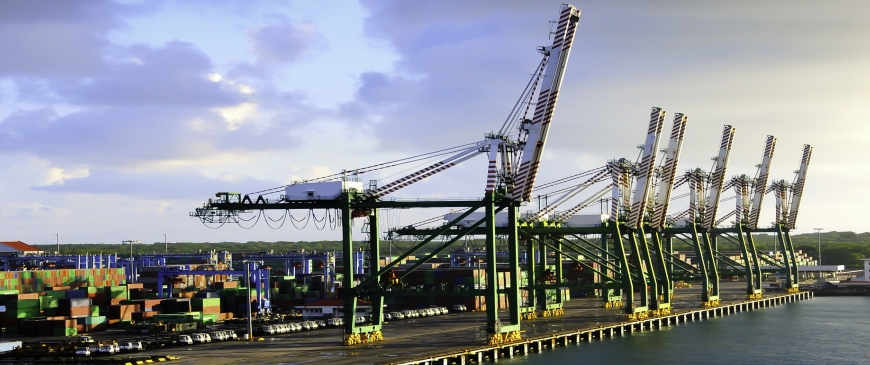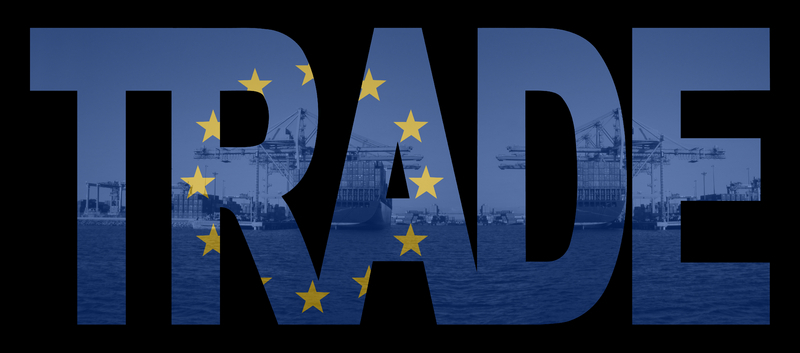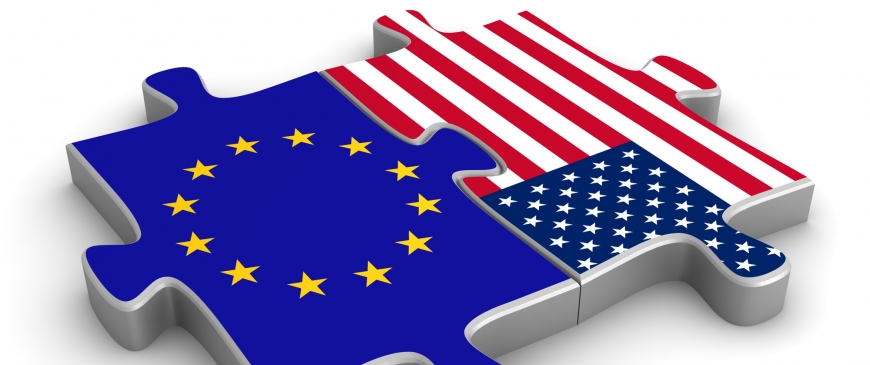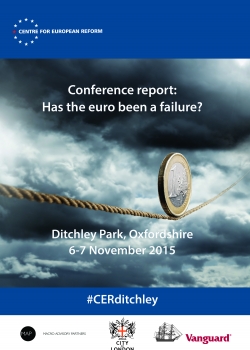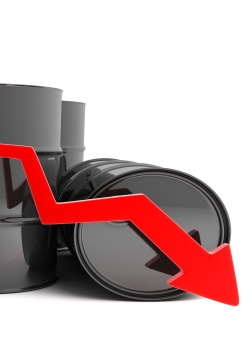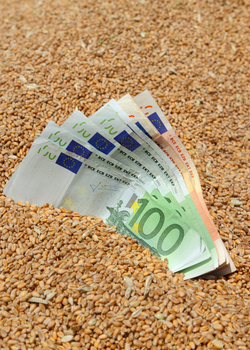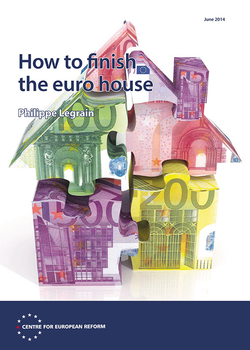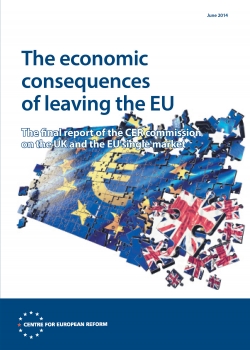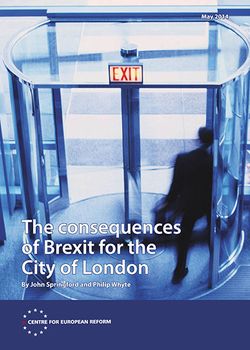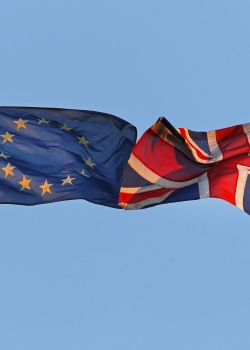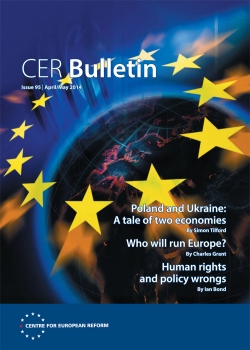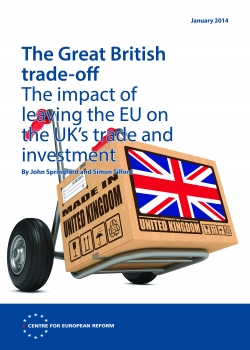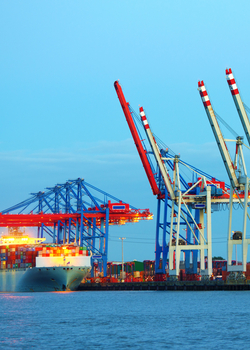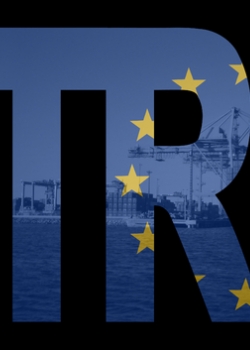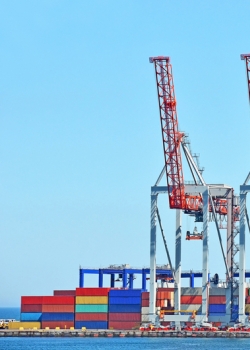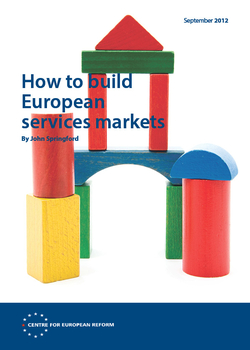Trade policy
Would an 'independent' Britain want to join the single market?
24 February 2016
Three economic rules mean that Britain would seek to join the EU's single market if it were not already a member.
Has the euro been a failure?
11 January 2016
The euro has not been a positive economic and political force. But keeping the single currency together could still be less risky than dismantling it.
Beware of cheap oil!
07 October 2015
Europe’s economies welcome the collapse of oil prices. But serious foreign policy problems await if oil remains cheap.
Issue 104 - 2015
25 September 2015
- Jeremy Corbyn and the rise of groupthink, John Springford
- Eastern mess: The EU's partners need attention, Ian Bond
- Will the eurozone reap what it has sown?, Simon Tilford
Will the eurozone reap what it has sown?
24 September 2015
The slowdown in emerging markets leaves the eurozone even more reliant on exports to the US and UK to compensate for its feeble domestic economy.
The low-hanging fruit of European capital markets
08 April 2015
The planned capital markets union in Europe faces many obstacles. Commissioner Hill was right to start with the lower-hanging fruit.
Would Britain’s trade be freer outside the EU?
16 October 2014
A post-‘Brexit’ Britain would struggle to make up for foregone trade opportunities with the EU by signing trade agreements with non-European countries.
The eurozone's real interest rate problem
08 July 2014
Aggressive fiscal and regulatory policies are needed to counteract the effects of divergent real interest rates in the eurozone – but this is not happening.
How to finish the euro house
17 June 2014
Eurozone governance is politically unsustainable: its rules and institutions favour creditor over debtor countries. Eurozone policy-makers need to change direction before it is too late.
The economic consequences of leaving the EU
09 June 2014
A group of experts finds that, after leaving the EU, the UK would face an invidious choice: sign up to the single market’s rules, or suffer economic damage.In April 2016 an updated version of the report The economic consequences of leaving the EU: The final report of the CER commission on Brexit 2016 was published.
The consequences of Brexit for the City of London
08 May 2014
If Britain leaves the EU, the City of London will lose access to European markets – unless the UK aligns its financial rules with those of the EU.
Why a British exit is not inevitable
17 April 2014
Lord Ashcroft’s polling shows that pro-Europeans can win an in/out referendum. But what are the best arguments to use in such a campaign?
Poland and Ukraine: A tale of two economies
31 March 2014
The EU finally needs to fulfil its moral obligation to Ukraine: to treat it like any other sovereign country trying to escape Russia's grasp.
Issue 95 - 2014
31 March 2014
- Poland and Ukraine: A tale of two economies, Simon Tilford
- Who will run Europe?, Charles Grant
- Human rights and policy wrongs, Ian Bond
The Great British trade-off: The impact of leaving the EU on the UK's trade and investment
20 January 2014
Eurosceptics think Britain can leave the EU and still have access to its markets. But to do so, Britain will have to sign up to EU rules.
Why Germany’s trade surplus is bad for the eurozone
29 November 2013
In late October, the US singled out Germany as a threat to the global economy. The Treasury issued a report saying that Germany’s current account surplus – now around 7 per cent of GDP – imposes "a deflationary bias for the eurozone as well as for the world economy."
Europe's trade strategy: Promise or peril?
02 May 2013
TGAE report
Europe's growth strategy is based on a larger trade surplus with the rest of the world, to make up for slow domestic growth, as consumers are weighed down by debt.
Freeing the transatlantic economy – prospects, benefits and pitfalls
20 February 2013
The EU and the US would benefit from freeing up transatlantic commerce. To succeed, they must agree some rules of engagement and stick to them.
Eurozone slump derails Britain's economic strategy
28 January 2013
The British government's drive to rebalance the UK economy has foundered on falling exports to the EU; UK exports to the rest of the world are booming.
How to build European services markets
28 September 2012
European services markets are still overwhelmingly national. There are big economic gains to be made from opening them up.
Europe’s leaders are casting around for ways to improve the EU’s economic performance. In the long term, a more integrated single market for services could improve Europe’s weak productivity growth. The...
Europe’s leaders are casting around for ways to improve the EU’s economic performance. In the long term, a more integrated single market for services could improve Europe’s weak productivity growth. The...

